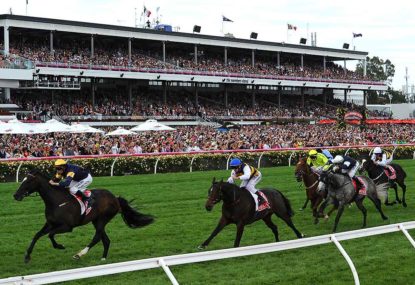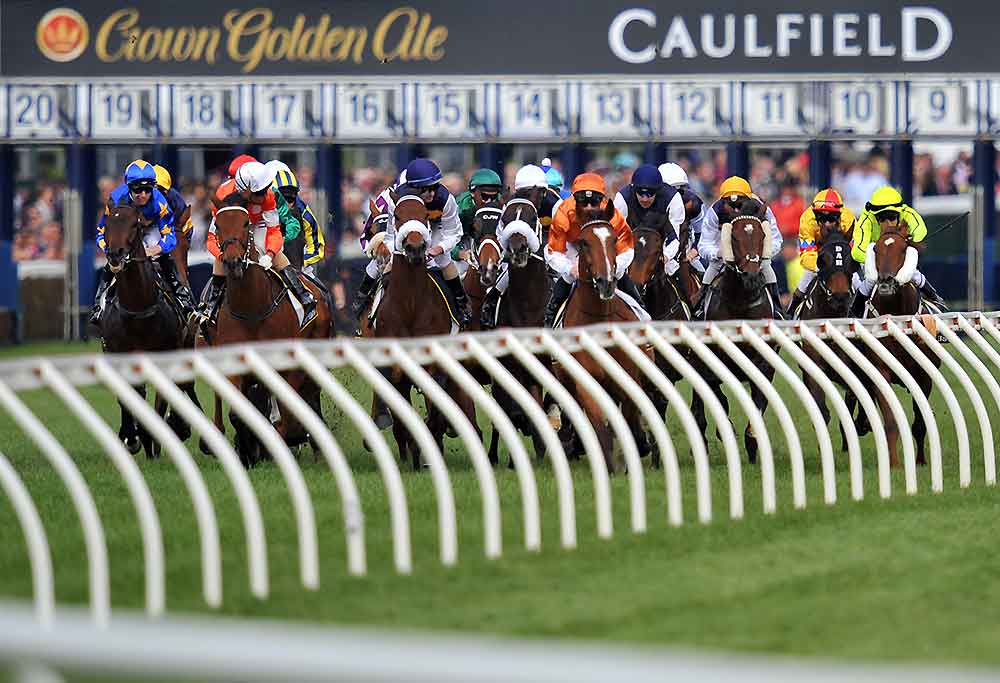TWO GOOD! Zahra wins back-to-back Melbourne Cups on Without a Fight as three horses pull up lame
Without a Fight completed the rare Caulfield Cup-Melbourne Cup double on Tuesday as star jockey Mark Zahra went back-to-back in the big one after…

It’s my firm belief that the tipping industry pre-dates the racing industry. In fact, if you’re willing to be esoteric in your definition of ‘tipping’, you could argue that the prophets were the original tipsters.
All that aside, with the advent of organised gambling came the beginning of the paid tipping industry – both honest and otherwise. The number of scams was limited only to the imagination, and let’s face it – scammers generally have Disneyesque imaginations.
It could be the classic on course ‘Circle and Drop’, where a grifter ‘accidentally’ drops their form guide. When some kindly soul picks it up for them, the tout gratefully points out a horse they’d circled and suggests they mark bets heavily. If the horse wins, the tout is quickly on hand to collect their sling; if the horse fails, needless to say, the mountebank is never sighted again.
Another old classic is to tip different horses to different subscribers, ensuring there was always winners to buy in the following week.
While last year saw new technology revive old tricks. An SMS philanthropist sent messages to an entire calling list spruiking the winner of the previous year’s Doncaster, citing inside information from “the trainer”.
Of course, what said man of the people failed to realise was that many message recipients were bound to know each other, and, indeed, some of them owned multiple phones. So the fact everyone had received a different horse was quickly established.
That is not to say that there aren’t plenty of honest tipsters around.
Many think it’s impossible to win from investing on horse races, pointing out that both totalisators and bookmakers offer a negative sum market. But this is demonstrably incorrect.

The simplest argument is to point out the success stories.
If you can cough up for a $150 million museum in Hobart with the proceeds of punting, then it’s fair to say that money is there to be made. And consistently.
The technical argument is as follows: neo-classical economics demands that one of the requirements for a perfect market is perfect information. I can think of few markets where the information is as imperfect as the racing industry.
Don’t get me wrong: there is a lot of information available. It is, however, not necessarily what you need to know.
Furthermore, a little knowledge can be a dangerous thing.
Someone sticking a pin in a form guide will return 86 per cent of their money and do better than the average punter. This boils down to the fact that if the average punter does the same thing as other average punters, then they will be penalised by the market, even if based on sound performance principles.
This is the trap into which most television pundits fall (and they’re all going to think that they are the exception). They are trying to find a winner, rather than generate a rate of return.
Like economists, so long as they can explain their failures, they can be right 30 per cent of the time and still be considered at the top of their field.
This then leaves the remainder of the tipping fraternity.
Prices range from free to $100 per day, and the quality tends to vary just as widely. Some are based around personalities – often a former jockey and a hotline.
I’d be very wary of such an offering.
The more reliable operators will generally offer a profit on turnover figure, often with examples of horses backed.
Financial service ads always use the disclaimer that past performance is not an indicator of future results. I’d dearly love to know what is a better indicator.
It does, however, pay to investigate the bona fides of these results. Did they actually tip those horses?

A quick internet search will usually tell you if they didn’t. There’s too many blogs and forums out there to go undetected for an extended period of time.
It also pays to check if the returns quoted are genuinely (as opposed to theoretically) achievable. Any euchre player will tell you a good scorer will beat a good player.
Look for marketers pointing out specific bookies at specific times, are you really going to time the top of the market every time?
For all that, there are tipsters out there offering a profitable service. You can save time, make money and impress your mates.
It just involves a little leg work before deciding on a provider.
The Cherry Picker is an Australian horse racing tipping service operating seven days a week with independently audited results.
Their mission is to seek out the most profitable opportunities nationwide for clients looking to successfully bet on Australian racing.